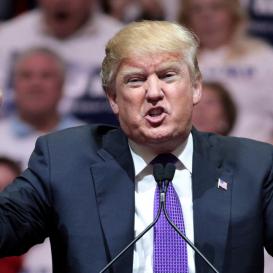In the confusing spectacle that is the American electoral process lies a single day when the most states vote at the same time in the primary season. This day, March 1, is known as Super Tuesday, in which these states either cast ballots or caucus for a candidate in either the Democratic or Republican Parties.
Each party elects a nominee based on total delegates awarded through the primary process. It takes 2,383 delegates to win the Democratic nomination and 1,237 for the Republican; the winner of each is later officially nominated at each party’s convention held later in the year.
Most delegates are awarded by percentages of votes. So for example, Massachusetts which has 116 Democratic Party delegates will not award all 116 to the winner and instead will award them to both Hillary Clinton and Bernie Sanders proportional to their winning percentage in the state. So it is possible to lose a state and still walk away with a large number of delegates to help you secure the nomination later in the year.
Why is it important?
The importance of the day lies in the fact that history tells us whichever candidate wins the most states in Super Tuesday’s elections will go on to be the party nominee. While this is not a rule, just historically how it’s played out, it puts one candidate in a much stronger position than the rest to campaign through the rest of the primary season, helping them secure the final nomination at the respected parties convention. The mainstream media also tend to treat the night’s winners as the nominee and this tends to be reflected in the minds of voters.
Heading into the Super Tuesday primaries, Republicans were trying to find a way to upset Donald Trumps clear lead over the party’s nomination, but early polls suggested he would have a strong showing in most states.
Democratic candidate Bernie Sanders was headed into the day facing an uphill battle after a crushing defeat in South Carolina and polls suggesting that his rival Hillary Clinton held a commanding lead in many of the Super Tuesday states.
As results began to roll in Tuesday night, it became clear that both Trump and Clinton were the clear winners. Trump picked up an additional 175 delegates and Clinton 417. While Sanders didn’t go home empty-handed, his pickup of 230 wasn’t enough to win the night, stacking the odds against him.
Republicans Marco Rubio and Ted Cruz has much weaker nights in comparison, with neither bringing in more than 100 new delegates and leaving Trump with a clear lead, a victory that seems to solidify –barring any wild turn of events– his position as the Republican candidate for president.
Mounting speculation
While neither nomination is official, the media in the U.S. has already begun speculating what the Clinton versus Trump battle will look like, and polls have been torn on which candidate has the potential to take the White House. One thing is certain for American voters at this point, however, and it is that these two choices could not be further apart ideologically and both parties, and especially the American people, have a lot to either gain or lose in this election.
What do you think? Have your say in the comments below and read other articles in our US Election season here.









